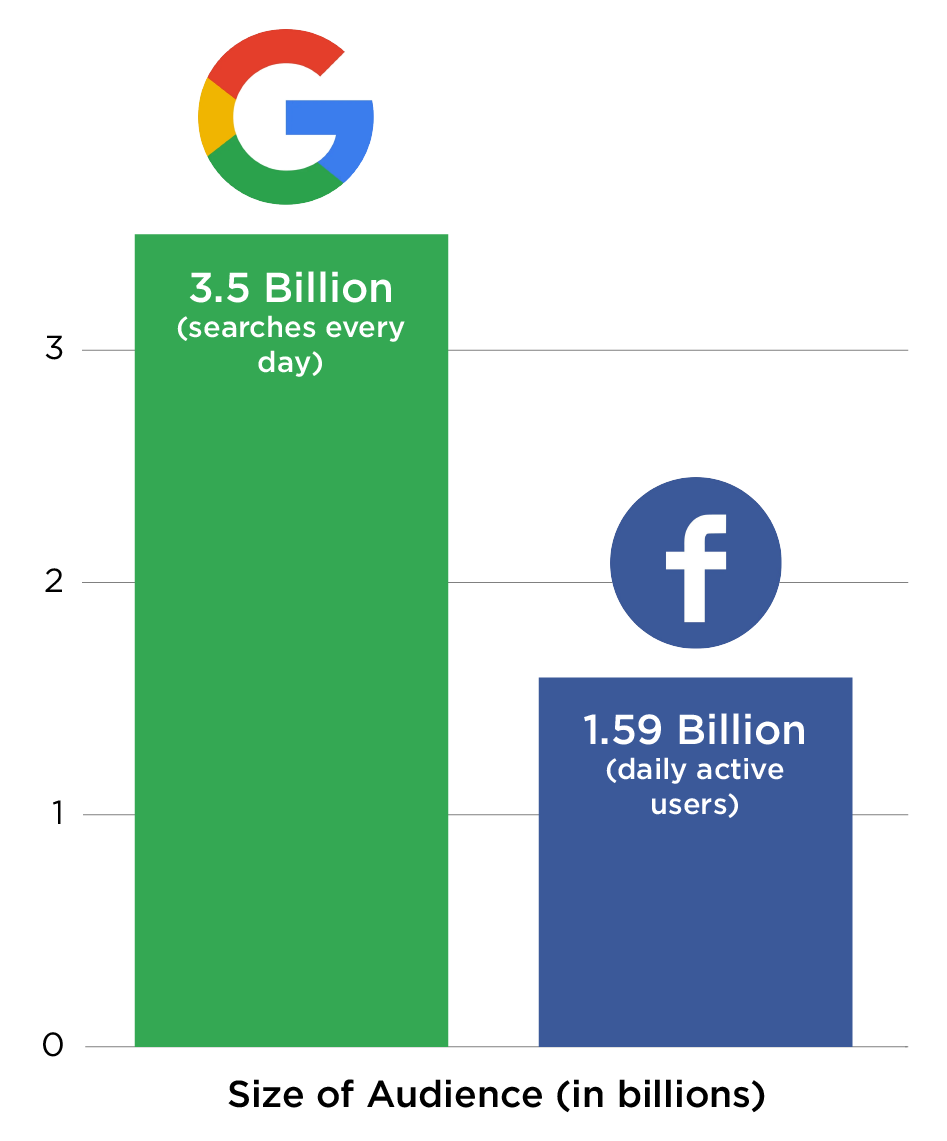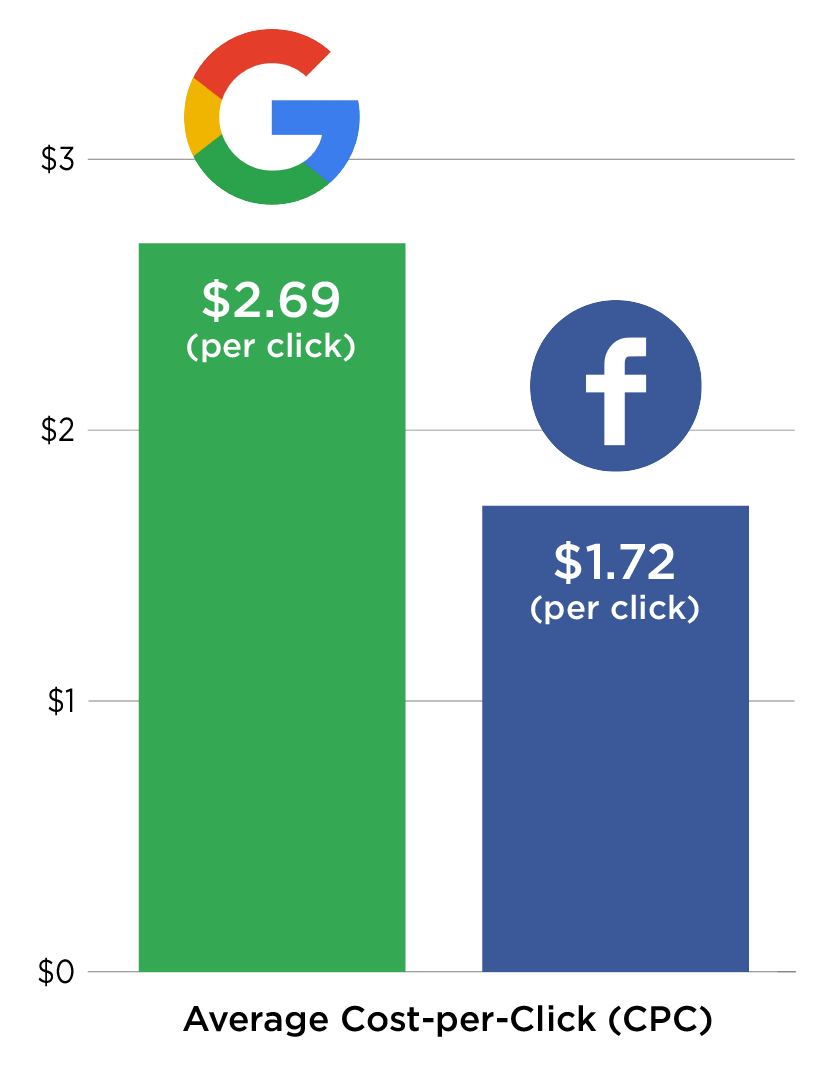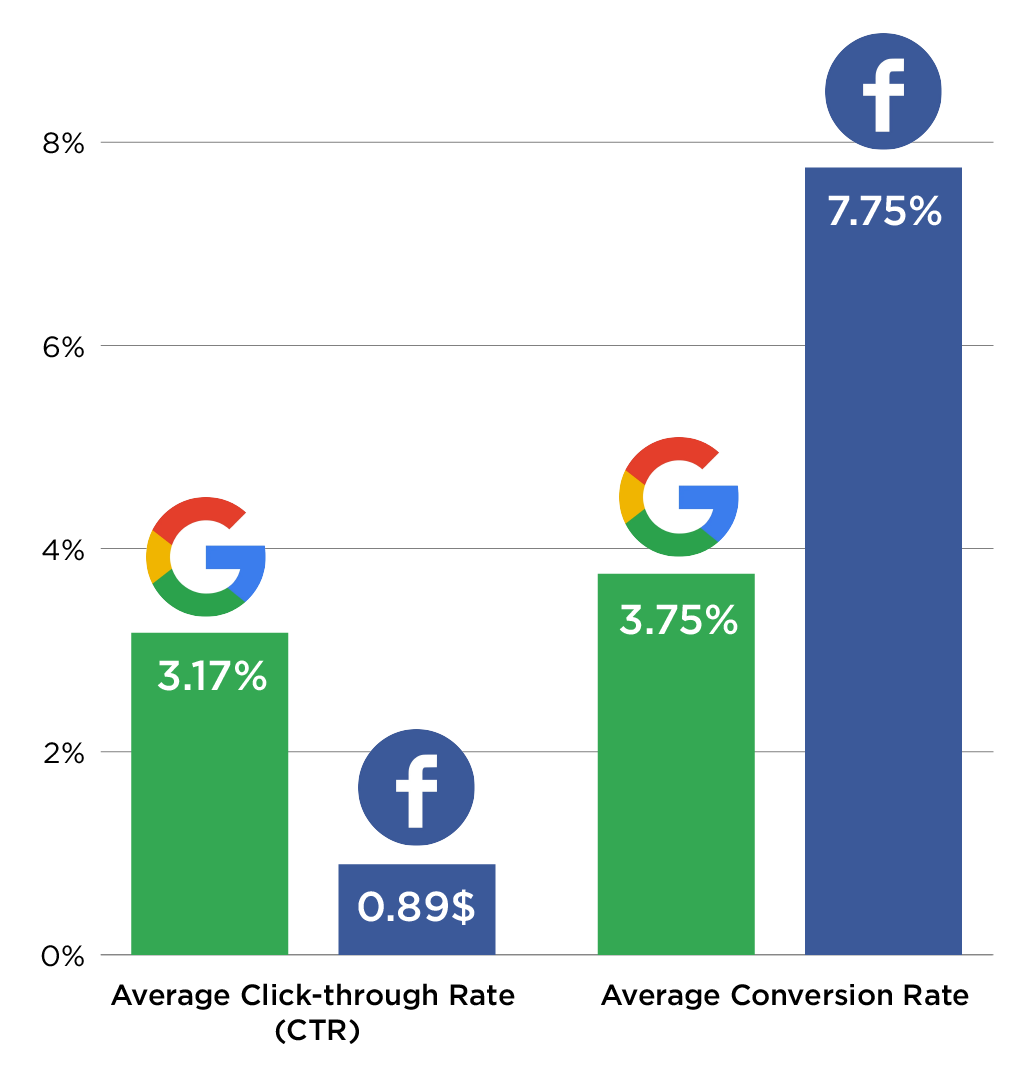Round One: Advertising on Google vs. Facebook – Who Will Land The Better Punch!
Posted on August 19, 2022
By Michael Miller, Digital Media Designer

For B2B businesses, today’s interaction in the advertising world is happening across multiple digital platforms and devices, and potential buyers are accustomed to a seamless experience from web to mobile, between different rich media mediums (video, static, interactive, etc.), and on all social media platforms.
Ad technology and innovations are always advancing, making it a constant challenge for marketing firms like us, CS Designworks. All the various ways to engage buyers in today’s technology savvy culture can overwhelm clients in need of marketing their product, and done poorly it can lead to low engagement, wasting money, and disappointed buyers.
So does modern day digital advertising really work?
In a three-part (3 "rounds") series, CS Designworks will go in-depth on this question, focusing on advertising for small B2B businesses and comparing two of the biggest names in digital advertising: Google and Facebook.
In Round One we breakdown the two platforms and bring you facts and stats. For Round Two, we’ll put our money where our mouth is and run two CS Designworks campaigns, one on Facebook and the other on Google. And for Round Three, we’ll present the results of our campaign.
A Brief History of the Digital Ad
Legend has it, the first ever “banner ad” was for AT&T back in 1994.
Google first launched their AdWords service in 2002 (with the first YouTube ad in 2005, when this platform began) while Facebook began offering ads when they launched in 2007.
Digital advertising quickly advanced and evolved from there, with cross-channel interactivity, the use of cookies to track user experiences, and more.
Google vs. Facebook: The Nuts and Bolts
How Do Google and Facebook Ads Work?
Google is essentially a search engine and operates on a pay-per-click (PPC) basis. Their platform for advertisers is Google Ads, and ads commonly appear at the top of search result pages based on the user’s keywords and search terms. Google’s Ad Manager interface is considered not very user intuitive.
Facebook offers their Ad Manager interface, which is considered more robust and user friendly, where advertisers can target by demographics, interests, and engagement behavior patterns. It’s also PPC-based and you can set your ad budget, placement, and run time with Facebook Ad Manager.
How Do They Both Perform?
While Facebook’s strengths are a lower initial cost in advertising, establishing brand awareness, and demographic targeting, when it comes to the “down and dirty” return on investment (ROI), Google is widely recognized as the champion.
In comparison tests, there were more purchases per ad-spend using Google over Facebook.
Their Audience Focus – Passive or Ready to Buy?
With Google, users tend to be the active, “looking to buy” type. This is called “Intent” behavior. Given that Google is a search engine, its ad viewers are there to search for a product or service and are usually ready to buy.
 Facebook ad viewers are more of a mixed bag, with a lot of “window shoppers” that may or may not be ready to spend money. They are drawn to ads based on demographics, interests, location, etc., vs. proactively there to search for a product or service. This is called disruptive marketing.
Facebook ad viewers are more of a mixed bag, with a lot of “window shoppers” that may or may not be ready to spend money. They are drawn to ads based on demographics, interests, location, etc., vs. proactively there to search for a product or service. This is called disruptive marketing.
As for age, Facebook has a larger demographic of young professionals with an annual income of $100K or more.
In a nutshell, if you want to target the “intentional” buyer, Google shines. If you know exactly who your audience is, then Facebook fits the bill.
Which One Is Better For Small B2B Businesses?
Based on all of the information and data we’ve covered, it’s concluded that if you are a newer/smaller business with a need to increase sales to stay afloat, a lead campaign on Google will likely deliver a better return on investment (ROI) via the sales outcome.
On the flipside, Google Ads generally require a larger advertising budget, and will also require experience, so a small B2B business may need someone with that acumen.
The argument for Facebook Ads and a small B2B business is you can better pinpoint your target buyer/customer by advertising to people within categories of demographics, interests, and so on.
Also, businesses are often partnered with / connected to Facebook, and this data can often lead them to your newsfeed or get them messaging you directly.
 Price Comparison
Price Comparison
When it comes to cost efficiency, Facebook Ads takes the award. Based on a survey of respondents, nearly two-thirds said their average customer acquisition cost (CAC) was $10 or less, with 28% saying their average CAC was less than $5.
When it comes to conversion rates, Google Ads is the winner. More than half of marketers reported a cost-per-click (CPC) of less than $2 when using Google.
Overall, when it comes to just the price, most marketers prefer Facebook. And in terms of results, Google is seen as more effective.
What Are The Experts Saying?
Facebook Ad marketers generally tout its effectiveness at generating brand awareness, along with its low cost.
Marketers who use Google Ads are loyal to Google no matter how “popular” Facebook is because customers with purchase intent still head to their favorite search engine giant for research and, in the end, buying.
Google brings “retargeting power”, they say, and the power to advertise across wider web platforms, making it their mainstay favorite.
See Round Two…
Click here for Round Two, where CS Designworks puts its money where its mouth is and runs simultaneous campaigns to see which works better.
Sources:
https://fitsmallbusiness.com/facebook-ads-vs-google-ads/
https://databox.com/facebook-ads-or-google-ads
https://www.lyfemarketing.com/blog/google-ads-vs-facebook-ads/
Join Our Blog Community
@CSDesignworks



